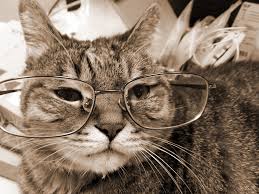
- When does my pet become “old”? It varies, but cats and small dogs are generally considered geriatric at the age of 7. Larger breed dogs tend to have shorter life spans and are considered geriatric when they are approximately 6 years of age. Owners tend to want to think of their pet’s age in human terms. While it is not as simple as “1 human year = X cat/dog years”, there are calculations that can help put a pet’s age in human terms:
-
Age: Human Equivalents for Older Pets
| Cat years |
Human years |
| 7 |
45 |
| 10 |
58 |
| 15 |
75 |
| 20 |
98 |
- Before any medical signs become apparent, behavioral changes can serve as important indicators that something is changing in an older pet, which may be due to medical or other reasons. As your pet’s owner, you serve a critical role in detecting early signs of disease because you interact and care for your pet on a daily basis and are familiar with your pet’s behavior and routines. If your pet is showing any change in behavior or other warning signs of disease, contact your veterinarian and provide them with a list of the changes you have observed in your pet. Sometimes, the changes may seem contradictory – such as an older pet that has symptoms of hearing loss but also seems more sensitive to strange sounds..
- You should talk to Dr. Roberts about how to care for your older pet and be prepared for possible age-related health issues. Senior pets require increased attention, including more frequent visits to the veterinarian, possible changes in diet, and in some cases alterations to their home environment.

Contact The Boulevard Veterinary Clinic today to ensure your loved one receives the proper care they deserve!
